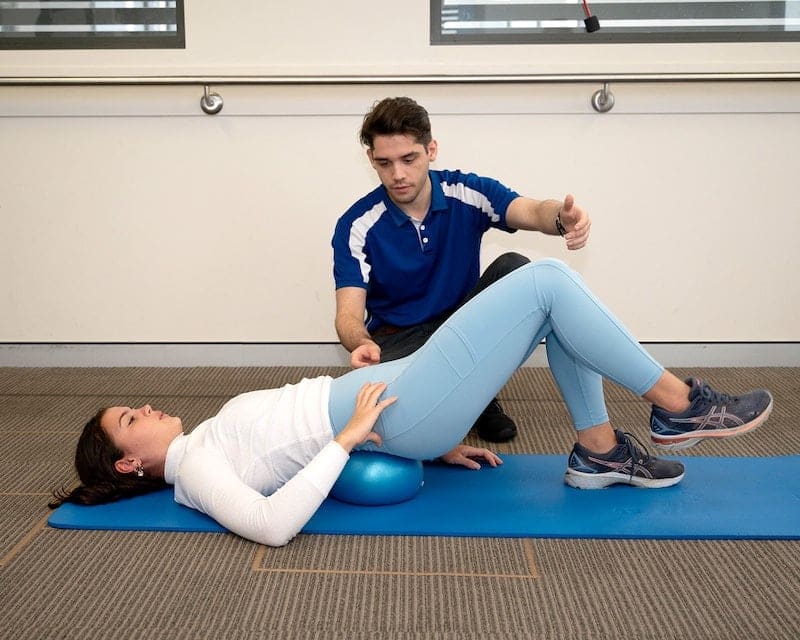MAY Update
Management of Rotator cuff Related Shoulder Pain
by Graceville Physiotherapist Michael Christensen
Shoulder pain is very common and up to 67% of all Australians will experience it at some point in their lives. While the onset of shoulder pain is often due to trauma, there are many cases in which there is no obvious cause, this can lead to confusion and frustration in sufferers (1). It is often helpful to conceptualize shoulder pain in one of following three presentations; 1. Stiff and painful, 2. Weak and painful, and 3. Unstable and painful.
Graceville Physio practices patient-centred care that is evidence-informed and is considerate of each individual patient and their unique circumstances.
If you have ever had shoulder pain and weakness that has occurred without trauma, you may have experienced what is known as Rotator Cuff Related Shoulder Pain, or RCRSP for short. This diagnosis is generalised in nature and acknowledges that any of the soft tissue structures of the shoulder can be responsible for pain and symptoms.
What to do if you are currently experiencing shoulder pain?
A Physiotherapist is an excellent place to start! Physiotherapists are what is known as “first-contact practitioners”, which means that you do not need a referral to see us as we are highly trained in the assessment, diagnosis, and management of all things musculoskeletal, including shoulder pain. A Physiotherapist will ask lots of questions to hep identify the problem, and then perform an objective assessment to firstly exclude any potential harmful causes of shoulder pain, and then identify any deficits in strength, movement, and function. Physiotherapists can refer for imaging if it is clinically indicated, and in cases where further investigation is required, we can appropriately refer to other practitioners such as a GP or Sports Physician.
Do I need to have imaging before attending Physiotherapy?
In many cases of atraumatic shoulder pain imaging is not required. While an Xray or MRI is excellent at showing the structural quality of the shoulder, unfortunately they are not able to quantify pain or symptoms. Imaging is only one piece of the puzzle and can show incidental findings that may have been present prior to the onset of pain, and in fact 96% of people between the ages of 40 and 70 years old will have some form of shoulder abnormality shown on imaging that is completely asymptomatic (2). If imaging is indicated, a Physiotherapist can make the referral.
What about injections?
The best practice management of shoulder pain is still debatable, although physiotherapy and corticosteroid injections are commonly used. In 2021 a large, randomized control was conducted to compared exercise versus an injection for the management shoulder pain (3). 708 people with shoulder pain were allocated to receive exercise, or exercise with an injection, with follow-up reviews held at 8 weeks, 6 months, and 12 months. The trial found that there was no difference between groups, with both groups having a reduction in pain and disability, and the injection only added an improvement in pain and function in the short-term at the 8 week follow up.
Graceville Physio practices patient-centred care that is evidence-informed and is considerate of each individual patient and their unique circumstances.
Clinical experience shows that some patients benefit from best-practice advice and self-directed exercises, while others may benefit from more regular physiotherapy. We will always discuss all options for care, which includes injections, and will refer on to other services when necessary. Physiotherapy is an efficacious and cost-effective treatment of shoulder pain.

DVA – Our experienced physio team is qualified in assessing and treating DVA patients covered under the Dept of Vets Affairs
You may be eligible to receive DVA funded physiotherapy if you have an assessed clinical need and hold: A DVA Gold Card or a DVA White Card and you have an accepted service-related condition or disability.
You may be able to get a referral from a GP for physiotherapy. Referrals are valid for 12 sessions under a “treatment cycle arrangement”. There is no limit to how many treatment cycles you have, as long as it is deemed clinically necessary.
The treatment cycle arrangement does not apply to Gold Card holders with Totally and Permanently Incapacitated (TPI) status. These clients can access ongoing physiotherapy as long as it is clinically necessary, evidence based and goals oriented. How to access physiotherapy:
– Obtain a referral from your GP, medical specialist, treating hospital doctor or discharge planner
Once your physiotherapist has received this referral and confirmed your eligibility they can:
– Assess your clinical needs
– Formulate a treatment plan
Physiotherapy services are aimed at reducing pain and improving function to help you in daily life and can involve:
– exercises to reduce pain
– exercises to improve strength, movement, balance and fitness
– manual therapy to reduce pain and restore movement
– dry needling to reduce pain and increase movement
If you would like to know more about how to access our physio services feel free to make contact with us at Graceville Physio

Our classes are small – This means you will have individual attention. It also enables the Physio to create a safe environment for you and your class mates. Phone 32781186 for further information.
Small Physio led classes
Graceville Physio Painslayers offers wonderful classes to help you with staying active, maintaining/improving strength and flexiblity, and helping our lovely women through pregnancy and after baby has been born.
Before you start with one of our classes, we will book you in for an initial one on one Physio assessment to identify the areas that need attention. We like to understand the reason behind an injury, lack of movement or pain. Understanding your history gives more of an insight into how best to help you get the best from the class.
